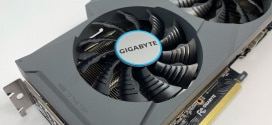Testing & Methodology
Before we began testing the Gigabyte X99-SOC Champion the test system was formatted, and Windows 8.1 x64 was installed. When the Windows installation was complete, we fully updated the OS, and installed the drivers necessary for our components. Auto-Updating and Windows Defender were then disabled and we installed all of our benchmarking software, performed a disk clean-up, cleared any prefetch and temp data, and ran the tests. Each test was ran 3 times then we averaged the three runs and report that average here. If any one run was to far out of range we toss the errant score and run the test again.
Test Rig
| Test Rig “Hexzilla” |
|
| Case Type | Corsair Obsidian Series 800D |
| CPU | Intel Haswell E 5930k 3.0GHz |
| Motherboard | Gigabyte X99 SOC |
| Ram | Kingston Fury 32GB 2400MHz (15 – 15 -15) |
| CPU Cooler | Thermaltake Water 2.0 |
| Hard Drives | Kingston M.2. SM2280S3 120GB M.2. SSD2 X Crucial MX 100 RAID 0Western Digital 2TB storage drive |
| Optical | Asus Quiet Trac BR |
| GPU | EVGA GTX 960 SSC |
| Case Fans | 120mm Fan cooling the mosfet CPU area |
| Docking Stations | None |
| Testing PSU | SilverStone 1500W |
| Legacy | None |
| Mouse | Razer Lachesis |
| Keyboard | Razer BlackWidow Chroma |
| Any Attempt Copy This System Configuration May Lead to Bankruptcy |
|
Benchmarks
| Benchmarks |
|---|
| SuperPi Mod 1.5 |
| Wprime 1.55 |
| PCMark 7 |
| Cinebench R11.5 |
| X264HD |
| Truecrypt 7.1 |
| Unigine Heaven 4.0 |
| Handbrake |
| AIDA64 |
 Bjorn3D.com Bjorn3d.com – Satisfying Your Daily Tech Cravings Since 1996
Bjorn3D.com Bjorn3d.com – Satisfying Your Daily Tech Cravings Since 1996







